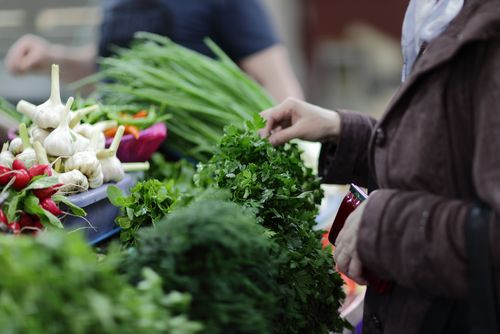FDA’s New Rule Protects Against Intentional Food Contamination: Will Farmers Markets Survive Modernization Act?

Today, in support of the Food Safety Modernization Act (FSMA), the Food and Drug Administration (FDA) has proposed a new rule that would require the largest food businesses — both in the U.S. and abroad — to take steps to prevent facilities from becoming the target of intentional attempts to contaminate the food supply. The FSMA, considered the first major reform to food safety regulations since 1938, was signed into law by President Obama on Jan. 4, 2011. “Such events, while unlikely to occur, must be taken seriously because they have the potential to cause serious public health and economic consequences,” Michael R. Taylor, the FDA’s deputy commissioner for foods and veterinary medicine, stated in a press release issued by the agency.
Under the newly proposed rule, a food facility will be required to have a written food defense plan that addresses vulnerabilities in its production processes. Facilities then will identify and implement strategies to address these weaknesses, establish monitoring procedures and corrective actions, verify its chosen system is working, and ensure that personnel receive appropriate training and maintain records. Today’s new rule is the sixth issued under FSMA this year and though there is universal agreement that safety is of the utmost importance, some small farmers, including those who produce organic foods, worry they will be crowded out of an increasingly global market.
Small Farmers, Organic Food
Testifying at an FDA's rule hearing, Michael Tabor, owner of Licking Creek Bend Farm of Pennsylvania, said:
Most farmers like me already have a 'contract' with our customers that our food is safe to consume. If we didn't, we'd be out of business. But where we differ is that I also define as zero-risk-based food as that which is free from pesticides, herbicides, and genetically modified organisms. These are my customers' primary concerns. The FDA has made the decision that those are not their concerns, nor its mandate. Your priorities, I believe, come from, a belief in an industrialized food system and a little or no sensitivity to the needs of the 20 million customers who shop at farmers markets, going out of their way to buy healthily-grown, pesticide-free food directly from the farmer.
Nearly 15 percent of the U.S. food supply is imported from about 150 different countries, according to the FDA. This includes nearly half of the fresh fruits and one-fifth of the fresh vegetables consumed by Americans each year. Compared to a predominantly domestic food system, the FDA has naturally encountered greater difficulties and challenges in its abilities to oversee an increasingly global system. Such 21st-century issues, then, inspired revision of food safety laws and outline the concerns addressed by the FSMA. Yet some people question whether the new regulations might unintentionally hurt as opposed to help those it is meant to protect.
"I refuse to put my produce through an antiseptic wash and seal them in bags. I sell fresh from the field,” Tabor said. In fact, the very idea of removing all bacteria from food or the environment, Tabor asserted, is simplistic. "We're going in the wrong direction. Every time we try to make ourselves purer, we're making ourselves sicker." Indeed, the FDA itself voiced similar arguments just four days ago when it weighed in on the use of antibacterial soaps.
Horse’s Mouth
Antibacterial soaps, known by some as antiseptic soaps, contain chemical ingredients meant to reduce or prevent bacterial contamination. A large number of such soaps contain triclosan, which has been shown in animal studies to alter the way hormones work in the body. "New data suggest that the risks associated with long-term, daily use of antibacterial soaps may outweigh the benefits," Colleen Rogers, Ph.D., a lead microbiologist at FDA, stated earlier this week. Ingredients, such as triclosan, "may have unanticipated hormonal effects," the press release stated, while the soaps may contribute to bacterial resistance to antibiotics. In short, too clean equals too many chemicals, which are more toxic to our health, in some cases, than the germs and bugs they are trying to kill. Plus, these chemicals are also creating stronger bugs.
Yet under the auspices of the FSMA, the FDA may be moving in a direction that the agency itself sees as unsafe. For instance, among the rules proposed earlier this year under the FSMA, the Produce Safety Rule established science-based standards for the produce industry which could require changes to some of the time-tested and natural ways farmers cultivate their crops, including the use of manure as fertilizer. Some farmers believe the FDA has no real knowledge of farm practices. "The bureaucrats seem to be running roughshod over a situation they don't understand," Jim Crawford, who grows certified organic produce in Fulton County, told Public Opinion. "I don't know how we could use manure at all. The standards for using water irrigation are just not possible."
Are the protections devised by the FSMA truly safe? “The FDA’s goal is to devise an approach that effectively protects the food supply in a practical, cost effective manner,” Taylor stated. No one disagrees that safety is at issue when, according to the Centers for Disease Control and Prevention, roughly one in six Americans (or 48 million people) get sick, 128,000 are hospitalized, and 3,000 die of foodborne diseases each year. Perhaps something like antibacterial soap, though, the FDA may be trying a bit too hard to be clean.



























